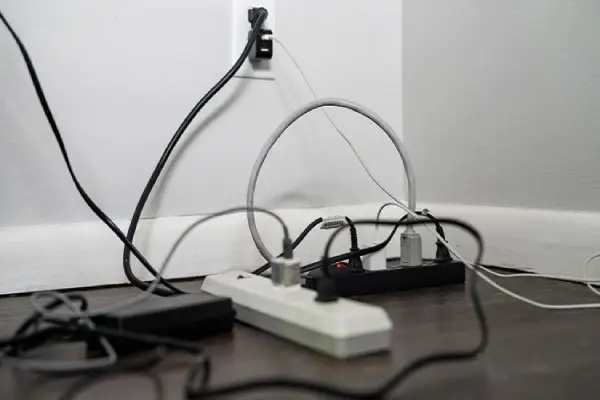
Mr. Electric explains key causes of electrical fires and how to prevent them.
|
Electrical fires account for about 51,000 residential fires each year. Think your home is safe? Understanding the risks and causes of electrical fires is the best way to protect your family.
The Most Common Causes of Electrical Fires
How do electrical fires start? All it takes is excessive heat or a single spark. Here are some of the top causes of electrical fires:
- Outdated or Worn-Out Electrical Wiring
How old is your home? Houses built more than 20 years ago most likely have antiquated wiring. Unfortunately, outdated wiring is a leading cause of house fires. It doesn't have the capacity to meet the demands of modern technology and energy consumption, so you may notice frequent circuit breaker overloads, power outages, or other signs of bad wiring.
Fire Prevention Strategy: Hire a qualified electrician to inspect your home and replace any old or damaged wiring.
- Faulty Electrical Outlets
Did you know most electrical fires start in outlets? Ungrounded outlets are more likely to spark, form an electrical arc, or catch on fire. Even grounded outlets can start a fire if the wiring behind them loosens. GFCI outlets can help prevent fires by tripping the circuit in the event of a short.
Fire Prevention Strategy: Inspect outlets regularly. Look for signs of wear, including soot around the sockets or switches. If the wires are loose, tightening them will reduce the chances of a fire. Always call a professional electrician for outlet upgrades or serious electrical repairs.
- Electrical Circuit Overloads
Plugging too many cords into a single power source is a recipe for disaster. Avoid using a single extension cord to power multiple appliances and electronics at once. Overloading the circuit will wear out the system and could result in a fire.
Fire Prevention Strategy: Instead of relying on extension cords, try using multiple outlets and ensuring your appliances have a dedicated circuit. If you don't have enough outlets or dedicated circuits in your home, hire an electrician to install more.
- Old Appliances
Sure, that toaster from the 1960s may look cool, but it's probably not safe to use. Older appliances are not up to modern standards when it comes to materials, construction, and safety regulations. Furthermore, outdated appliances are more likely to have frayed cords or loose wiring.
Fire Prevention Strategy: Inspect appliances for signs of electrical damage. Any appliances that make strange noises or produce a burning smell should be inspected by an appliance repair expert. Replace faulty appliances with new models that follow current safety standards.
- Light Fixtures
Not all light bulbs work with every fixture. Installing a high-wattage bulb in an incompatible lamp is a top cause of electrical fires. Covering the lamp with a makeshift cloth lampshade may also result in a fire.
Fire Prevention Strategy: Double-check the wattage before installing new light bulbs. If a light fixture gets too hot when in use, it's time to replace it. Only use commercial lampshades designed to fit the shape and size of your fixture.
- Portable Heaters
Space heaters have a reputation for causing house fires. These appliances heat up quickly and can ignite flammable materials almost immediately. Placing a portable heater too close to curtains, bedding, or upholstery may result in a fire.
Fire Prevention Strategy: Store portable heaters on flat, fire-safe surfaces, and keep them away from flammable materials. Never leave a space heater unattended, and always unplug the unit when not in use.
Tips to Protect Your Family from Electrical Fires
Even if you follow all the safety precautions and rules, it's not always possible to prevent all electrical fires. If one breaks out, be prepared to protect your family. Here's how an electrician recommends you stay safe:
- Make sure your electrical system is up to code and safe for use. This may involve upgrading to GFCI outlets, updating an old electrical panel, replacing old wiring, and more.
- Never use electronics with frayed, broken, or crimped wires. They may spark and ignite.
- Install working smoke detectors throughout your home. Test and replace the batteries frequently.
- Invest in a fire extinguisher. Water doesn't work on electrical fires – and it could make the situation much worse. Choose a fire extinguisher with a class C or ABC rating.
Assess Your Home’s Fire Safety with Mr. Electric
Don’t let a preventable electrical fire ravage your home. Your local Mr. Electric® will identify and diagnose electrical-related problems by performing a professional electrical inspection. Schedule an appointment online or call us to keep your home safe from an electrical fire.
